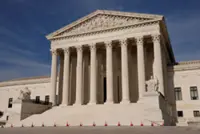by Xinhua writer Wang Zhuolun
JERUSALEM, March 23 (Xinhua) -- Israeli Prime Minister Naftali Bennett on Tuesday wrapped up his first-ever trilateral summit with the Egyptian and United Arab Emirates' leaders amid increasingly complicated regional and international situations, implying Israel's frustration towards the United States when the Iranian nuclear deal is approaching a solution.





